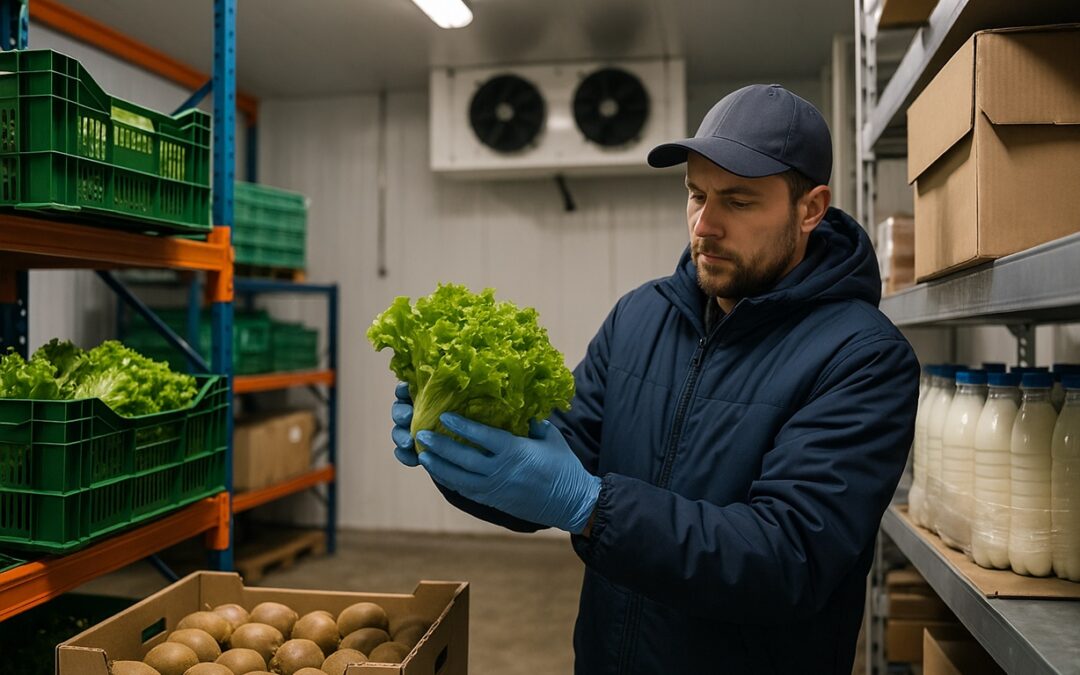Protecting Temperature-Sensitive Goods
Whether it’s keeping food fresh, preserving pharmaceutical products, or safeguarding temperature-sensitive materials, proper storage is crucial for businesses dealing with perishables. A single mishap—like an unexpected temperature spike or lack of ventilation—can result in spoiled goods and financial loss.
I understand how critical it is to get this right, especially for businesses that rely on maintaining product quality. This guide is designed to help you store temperature-sensitive goods effectively, ensuring they remain safe, compliant, and ready for use when needed.
Understanding Temperature-Sensitive Goods
Temperature-sensitive goods include any items that require controlled environments to maintain their integrity. This can range from food and beverages to cosmetics, pharmaceuticals, and even certain types of electronics.
Improper storage can lead to spoilage, contamination, or reduced efficacy, which not only affects product quality but can also violate health and safety standards. By understanding the specific requirements of your goods, you can choose the right storage solution to meet your business needs.
Do’s of Storing Perishables and Temperature-Sensitive Goods
1. Use Climate-Controlled Storage
Stable temperature and humidity levels are essential for protecting perishable goods. Climate-controlled storage units are specifically designed to provide this consistency, preventing issues like mold, condensation, and temperature-related spoilage.
At Newbury Self Store, our business storage solutions include climate-controlled options tailored for sensitive goods. Whether you’re storing food products or high-value materials, these units offer the ideal environment.
2. Label and Organize Items Clearly
Organization is key when dealing with perishables. Labelling items with clear expiration dates and storage requirements ensures easy identification and proper handling.
For example, a food business might separate frozen and refrigerated items, while a pharmaceutical company would need to categorize medicines by storage temperature. Using labelled containers also helps streamline inventory checks and minimize waste.
3. Monitor Storage Conditions Regularly
Even with the best storage solutions, it’s important to regularly monitor temperature and humidity levels. Using digital monitoring tools or smart sensors can provide real-time updates and alerts if conditions change unexpectedly.
Regular inspections also ensure that goods remain in good condition and any issues—like malfunctioning climate control systems—are addressed promptly.
4. Rotate Inventory Consistently
The “first in, first out” (FIFO) method is a must for managing perishables. This ensures older stock is used or distributed first, minimizing waste and maintaining product freshness.
When storing items in a unit, keep newer goods towards the back and older stock at the front for easy access. This simple method can save both time and money while keeping inventory under control.
5. Choose High-Quality Packaging
Proper packaging provides an additional layer of protection for temperature-sensitive goods. Insulated boxes, vacuum-sealed containers, or moisture-resistant materials can help preserve quality during storage.
We offer a range of packaging supplies designed to keep your goods safe, from durable boxes to specialized wraps for delicate items.
Don’ts of Storing Perishables and Temperature-Sensitive Goods
1. Don’t Store Items Without Proper Insulation
Leaving goods exposed to fluctuating temperatures or high humidity can quickly lead to damage. Even a short period in the wrong conditions can result in spoilage.
Always ensure items are stored in climate-controlled environments or with proper insulation to prevent condensation, mould, or drying out.
2. Don’t Overcrowd the Storage Space
Overcrowding reduces airflow, which is critical for maintaining consistent temperatures throughout the unit. When airflow is restricted, some items may cool or heat unevenly, leading to spoilage.
Organize items neatly, leaving space between boxes or shelves to allow air circulation. If you’re dealing with larger inventories, our container storage options provide the space needed to store bulk goods efficiently.
3. Don’t Ignore Manufacturer Guidelines
Every product has specific storage instructions, particularly temperature-sensitive goods like pharmaceuticals or specialty foods. Failing to adhere to these guidelines can result in compromised quality, safety concerns, or legal issues.
Always review manufacturer recommendations carefully and incorporate them into your storage plan.
4. Don’t Neglect Maintenance of Storage Equipment
A faulty climate control system can ruin entire batches of goods. Regularly servicing and inspecting storage equipment is vital for preventing breakdowns and maintaining optimal conditions.
If you’re using a storage facility, ensure it’s equipped with reliable systems that are regularly maintained, like the units offered at Newbury Self Store.
How Newbury Self Store Supports Businesses with Temperature-Sensitive Storage
At Newbury Self Store, we provide climate-controlled business storage solutions designed to meet the unique needs of businesses dealing with perishables. Our secure, clean, and temperature-regulated units ensure your goods are stored under optimal conditions.
For businesses handling larger inventories, our container storage solutions offer spacious and adaptable options. Additionally, we provide packaging supplies to help you protect your goods during storage and transportation.
Protecting Your Goods and Your Business
Properly storing perishables and temperature-sensitive goods is essential for maintaining quality, reducing waste, and ensuring compliance with industry standards. By following these do’s and don’ts, you can protect your products and avoid costly mistakes.
Explore our business storage options to find the perfect solution for your needs. If you have questions or need expert advice, our contact page is the best place to start. Let’s work together to keep your goods—and your business—in top condition.


